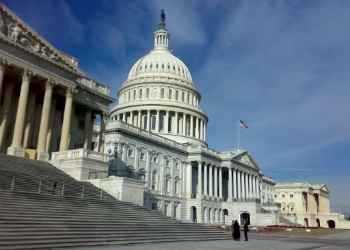A bipartisan group of members of the US Congress has asked President Donald Trump to investigate and sanction six individuals who have been accused of corruption and possible links to organized crime and drug trafficking in Latin America, putting added pressure on elites in the region.
On August 2, Democratic Congressman Eliot Engel and Republican Congresswoman Ileana Ros-Lehtinen — both senior officials in the House Foreign Affairs Committee — as well as three other members of Congress, announced they had signed a letter requesting the US State and Treasury Departments to determine if six individuals from El Salvador, Guatemala, Honduras and Mexico meet the criteria to be sanctioned under the Global Magnitsky Act.
The Global Magnitsky Act allows the United States to sanction government officials implicated in human rights abuses and corruption. This includes economic sanctions, the suspension of visas and restricting access to the US financial system.
The individuals singled out in the letter are Enrique Rais and José Luis Merino from El Salvador, Gustavo Alejos and Luis Mendizábal from Guatemala, Óscar Nájera from Honduras and Remigio Ángel González from Mexico.
InSight Crime Analysis
The letter is the latest political hammer from US Congress on the Northern Triangle. It comes just days after the passage of a law that will require the State Department to share the identities of government officials from El Salvador, Guatemala and Honduras who are involved in corruption and drug trafficking with Congress.
While targeted at six individuals, the letter sends a widespread message. The only official from the letter that is currently in office is Merino, who serves as deputy minister of foreign affairs in the administration of El Salvador’s President Salvador Sánchez Cerén. The country’s Attorney General’s Office is investigating Merino for possible links with Colombia’s now largely demobilized Revolutionary Armed Forces of Colombia (Fuerzas Armadas Revolucionarias de Colombia – FARC). He is also accused of favoring corruption and money laundering schemes related to the Venezuelan government. These investigations are currently stalled as Merino, also known as “Comandante Ramiro,” has immunity because of his government post.
The other Salvadoran, Enrique Rais, is a businessman accused in El Salvador of being part of a corruption network that worked with former Attorney General Luis Martínez, who is currently in prison on charges of corruption related to his activities with Rais. In the letter’s description of Rais, legislators mention a court document in which local authorities in Florida requested the seizure of an aircraft linked to Rais where anti-narcotics dogs found traces of drugs. Rais is a fugitive in El Salvador and has lived in Switzerland since 2017. An Interpol red notice has been issued for his arrest.
SEE ALSO: InDepth Coverage of Elites and Organized Crime
In Guatemala, Gustavo Alejos was one of the main political operators in the country during the administrations of former presidents Álvaro Colom and Otto Pérez Molina. His name appears in multiple investigations carried out by the Attorney General’s Office and the International Commission Against Impunity in Guatemala (Comisión Internacional contra la Impunidad en Guatemala – CICIG) into corruption networks that involved government contracts in return for bribes. Specifically, Alejos was implicated in a corruption scheme in Guatemala’s Social Security Institute that “favored certain pharmaceutical suppliers in exchange for bribes.”
Mendizábal has also been implicated in corruption networks in Guatemala. In particular, the members of US Congress write that he played a role in the “La Linea” customs fraud network allegedly headed by then-President Pérez Molina and then-Vice President Roxana Baldetti. Mendizábal allegedly owned a company that was used to coordinate bribes, while he also allegedly paid bribes to a judge to secure “substitute measures” for defendants involved in the case.
The Mexican-born Remigio Ángel González was implicated in a different corruption network in Guatemala. Baptized as the “Capture of the State” (“Cooptación del Estado“) case, which was used to illegally finance the presidential campaign of Pérez Molina and Baldetti. According to the letter, two companies owned by González funneled some $2.3 million into their campaign between 2008 and 2011.
Lastly, Honduran Congressman Nájera has been linked to drug trafficking activities and the powerful Cachiros criminal organization. In testimony given to a US court in New York, former Cachiros leader Devis Leonel Rivera Maradiaga implicated Nájera — among other elites — as a collaborator of the criminal group. According to the letter, Nájera was allegedly paid to provide the group with information regarding accounts and properties that authorities seized.

